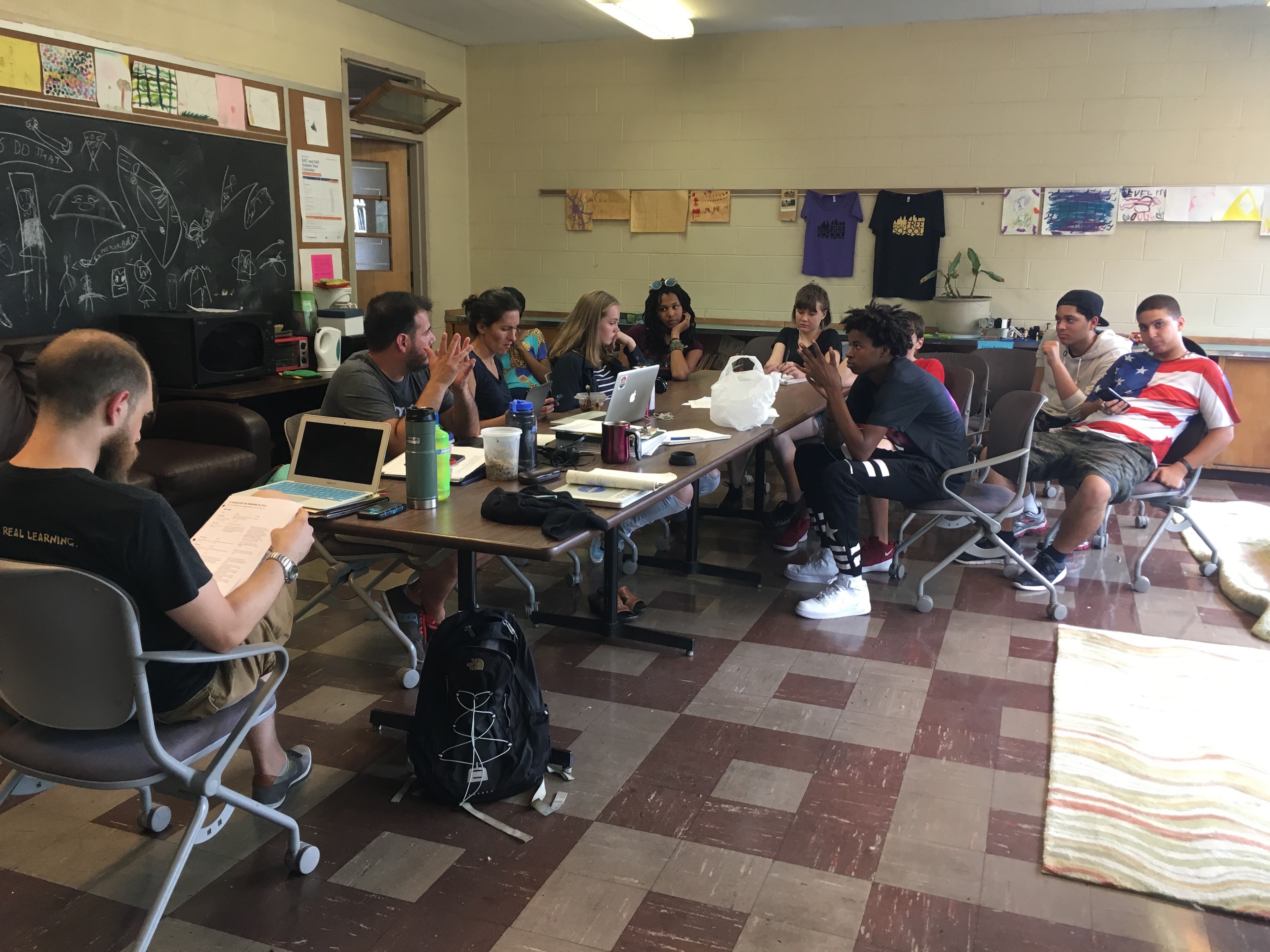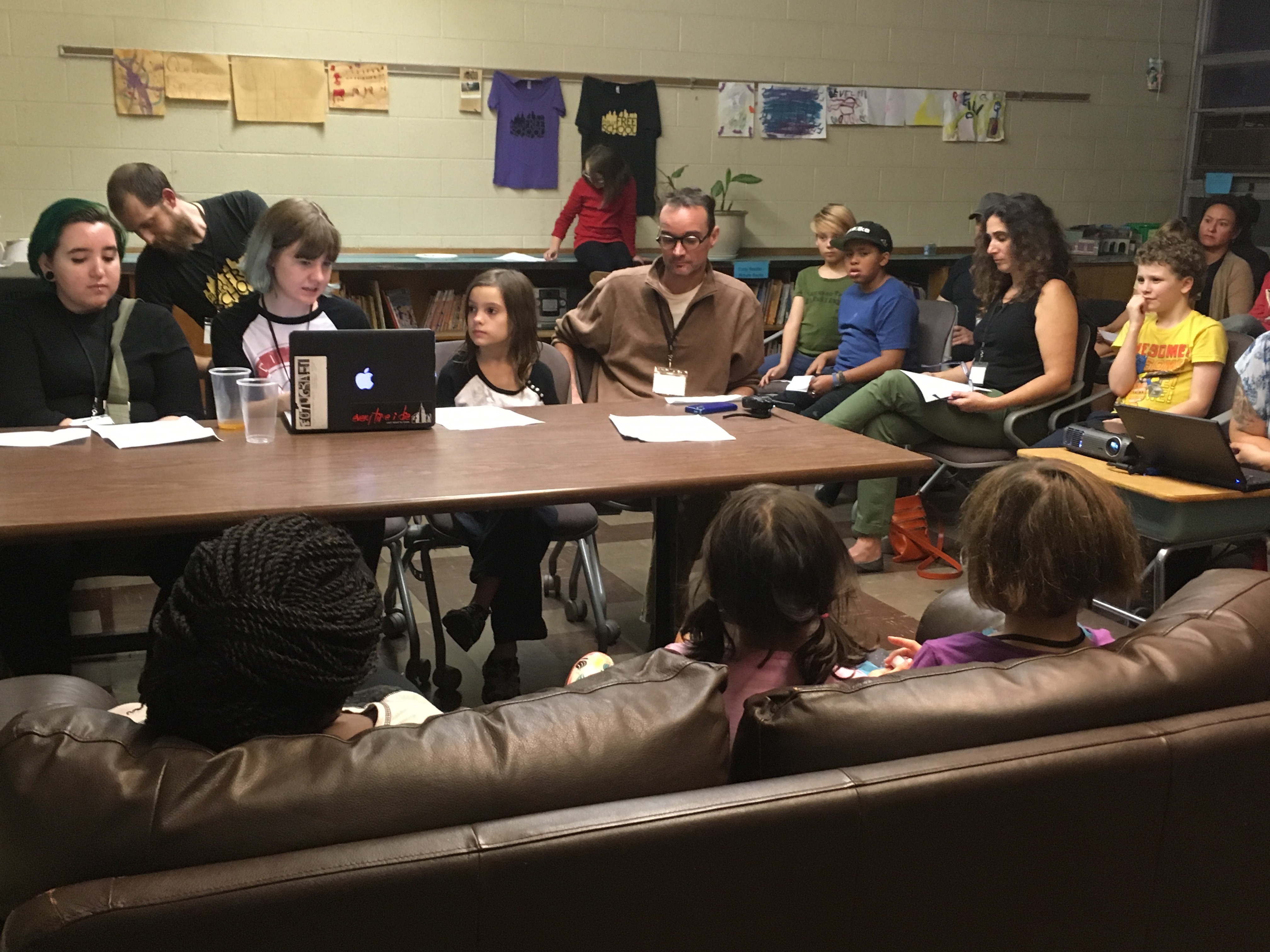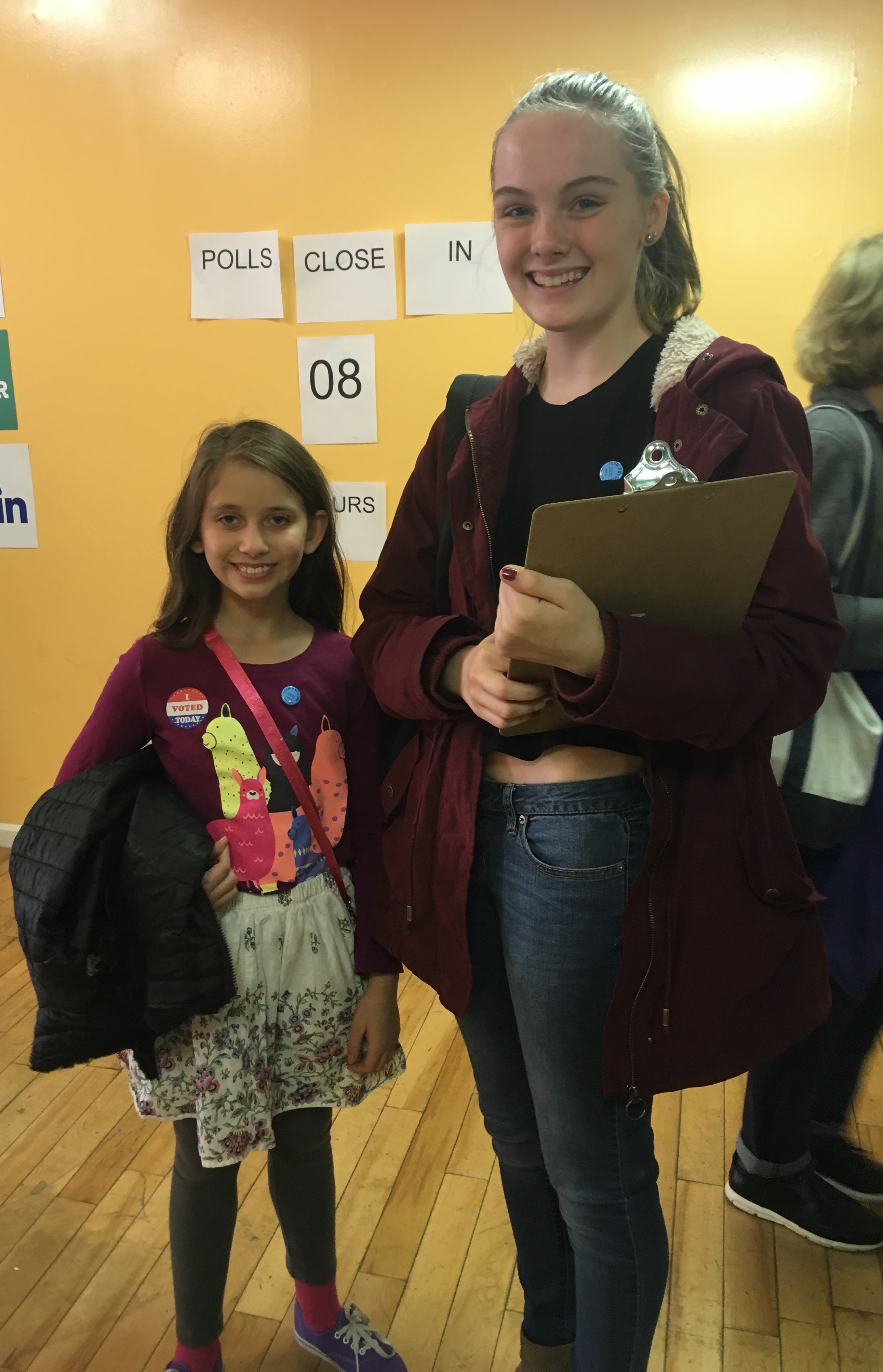PFS Is Hope by Marie Winters, PFS Parent

My daughter attends the Philly Free School. It’s a school that is based on the Sudbury democratic model of education. All learning is student directed. Students choose how best to spend their time, deciding what to learn and when instead of having a prescribed curriculum. At the same time, students are given a tremendous amount of responsibility and are tasked with not only finding a way to make that learning happen, but also the day-to-day running of the school. One of the ideas behind this model as I understand it is that children will learn how to be productive members of a democratic society if they function autonomously in a democratic environment throughout their education. My daughter enrolled in PFS in its inaugural year when she was just four years old. She’s ten years old now. She’s had five and a half years of democracy and autonomy under her belt, five and a half years of having an equal say in her education and her daily environment.
Madeline has never had a formal history, social studies or civics class, but you wouldn’t know it. This past presidential election piqued her interest more than any other election has. She discussed politics with just about all of the students and staff at PFS. She had the time to carefully consider the merits of candidates from Sanders, Stein and Clinton, to Johnson and Trump. She compared and contrasted Tim Kaine with Mike Pence. She dove into our Pennsylvania state senatorial campaign and learned about the platforms of Pat Toomey and Katie McGinty, and compared it to the candidates in the presidential election. Through this all she formed some very firm convictions about the candidates and their platforms; convictions largely shaped from the diversity of backgrounds and world views at her school, her ability to get to know these different students freely as individuals, and existing in an environment where each of these children has the same rights as one another and as the adult staff members.
 Students and staff serving on our Judicial Committee
Students and staff serving on our Judicial Committee
I think it’s remarkable that Madeline goes to a school where she has the same voice as any adult on staff, where her opinion matters just as much as anyone who is six or forty-six. Also, she doesn’t see learning as something that must happen during school hours; she sees no separation between what happens in school and what happens in the world outside of school. She lives her passion, and life is her education. So, simple knowledge about this past election was not the end-point. She spoke to people outside of school about her ideas and tried to sway their opinion. She attended political rallies. She decided to canvass for the presidential candidate of her choice based on her beliefs and her knowledge.
On election night, after the results started rolling in and it became clear that Madeline’s candidate wasn’t winning, we went to bed. I assured her that the results didn’t change who we are, and how strong we are. Maddy said that she felt bad because she thought that she hadn’t done enough to change people’s minds and influence the outcome of the election.
When I mentioned to my friend what my daughter said that night, she vehemently disagreed. “No, that’s wrong,” she said. “It was our responsibility as adults to change this outcome, not Maddy’s. We failed her and her whole generation.”
But the thing is, Maddy would disagree with that statement. The only difference she sees between us is that I’m allowed to vote and she’s not. (Just let her get started about the ageism inherent in that!) She is already taking responsibility for influencing the world around her, not just influencing her school environment. She sees herself as an agent of change – and she feels a responsibility for making the world a better place.
 PFS students canvassing on election day
PFS students canvassing on election day
The morning after Election Day, Maddy got up and replied to an email she had received from her candidate of choice during the run-up to the election. She told her that she would continue to fight for women’s rights and for people of color because she thought it was important, and because “it might change the country”. When I saw her email I cried – I was crying a lot that day, but they were tears of hope as much as sadness.
I have no doubt that the everyday respect, responsibility, and the core democratic processes that the children at PFS are part of have indelibly shaped them. They know they are responsible for being the change they want to see – whether it’s championing a sleepover, changing a chewing gum rule, or influencing a national election. Sometimes I wonder if such a strong feeling of responsibility is too monumental for someone so young to handle, but I also believe the knowledge that you can positively impact the world around you is necessary to bring about any kind of change – in your life, in a school, in the country, in the world.
Maddy didn’t have a mock presidential election at her school, like some other schools did. She was part of the actual presidential election, and I know she will be part of the actual presidential election four years from now. She told me so before bed on election night. “Mommy, the next election we’ll start early. We’ll go from house to house and talk to people. You’ll have to take off early from work. We’ll do it together.”
This is the power that democratic education holds. For me right now, PFS is powerful. PFS is hope.
